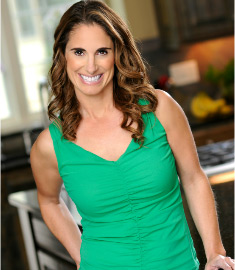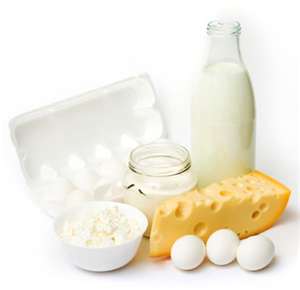Vitamin D is known as the sunshine vitamin because modest exposure to sunlight, as little a ten minutes per day, is usually sufficient for most people’s bodies to produce their own vitamin D, however; recent studies show many of us are not getting enough exposure do to inability or unwillingness to get outdoors as well as increased sun protection usage when we are outdoors. Did you know that using a sunscreen with as little as a SPF 15 cuts the skin’s vitamin D production by 99 percent?
The other issue is that there are only a few good food sources of vitamin D. Vitamin D can be found in foods such as salmon, tuna, mackerel and vitamin D-fortified products such as milk and cereal. Most adults need 5-15 mcg/day depending on their age and gender. Individuals with darker skin such as African Americans require more vitamin D because they have more melanin or pigment in their skin, making it harder for the body to absorb and use the sun’s ultraviolet rays to synthesize vitamin D. Increased Vitamin D intake may also be necessary in the winter months due to less sunlight and outdoor time. Adequate Vitamin D intake is crucial as it is necessary to maintain normal blood levels of calcium and phosphorus. Vitamin D aids in the absorption of calcium which helps to form and maintain strong bones. New findings are also suggesting that Vitamin D may provide protection from osteoporosis, hypertension (high blood pressure), cancer, several autoimmune diseases and even depression. It is important to note that Vitamin D is a fat soluble vitamin and is stored in the body thus it is possible to get too much which may result in vomiting, diarrhea and other unpleasant side effects. Follow the three tips listed below to help maintain appropriate Vitamin D levels.
- Consume 5-15 mcg of Vitamin D rich foods regularly. These include animal products as well as products fortified with Vitamin D such as milk and cereal. Check out the Vitamin D content of the following food sources:
- Herring, fresh, raw, 1oz 6.6 mcg
- Salmon, cooked, 1oz 3.5 mcg
- Milk, cow’s fortified, 1 c 2.5 mcg
- Sardines, canned, 1 oz. 2.1 mcg
- Liver, chicken, cooked, 3oz 1.1 mcg
- Egg Yolk .6 mcg
- Consider supplementation of 1000-2000 IU vitamin D3 per day if you are at risk for Vitamin D deficiency but make sure you discuss with your physician. Those with increased risk for deficiency include darker skinned individuals, those who get little to no sun exposure, the elderly, obese individuals, and exclusively breastfed infants. Also, individuals who have fat malabsorption syndromes (e.g., cystic fibrosis) or inflammatory bowel disease (e.g., Crohn’s disease) are at risk.
- Aim to get regular safe sun exposure midday twice a week.
To get more fitness and nutrition tips from Mitzi just “like” her BootCamp Facebook Page.
Research Assistance Provided by: Sarah Volling








This is very helpful thank you. Your comment regarding spf reducing the body’s ability to produce vitamin D is interesting. Other people will then tell you that you will develop cancer if you do not wear spf. Sounds like you are damned if you do and damned if you don’t.